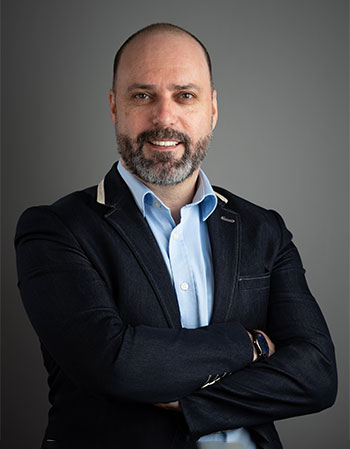In the centuries since science has gained autonomy from religion, spokesmen on both sides have grown accustomed to looking at each other with suspicion, ignoring each other, and addressing their followers by preaching against the “others.” There seemed to be little hope that scientists and people of faith would listen to each other and try to develop a common language, if not a common understanding.
In recent decades, however, many Christian theologians and scholars have taken the initiative to speak less to believers about the “others,” but to the others themselves, addressing issues and using a language that shows that they understand their concerns and requirements, and that they trust in their sincerity. An example is Clifford Goldstein’s small volume entitled God, Godel, and Grace: A Philosophy of Faith.
Those who appreciated Goldstein’s book will also enjoy the documentary “Beyond the Burden of Proof,” which was released in August 2021, in the form of a series of seven video presentations. The videos are aimed at those interested in the often-conflicting relationship between religion and science. The series is part of a larger project, initiated by the Irish Mission of the Seventh-day Adventist Church, and is based on a text written and narrated by Pastor Dan Șerb, the president of this organisation, based in Dublin.
Pastor Dan Șerb is originally from Făgăraș, Romania. He began his theological studies in Romania, continued them in South Africa, and then moved to Ireland. For many, however, the name Dan Șerb says more than a career as a pastor, even if it’s one with an unusual path. Years ago, in the Christian environment, reports and video recordings documenting numerous missionary trips to difficult areas of Africa (the Kalahari Desert), South America (the Amazon jungle), and the South Pacific (the Vanuatu archipelago) were highly valued. The name of Pastor Dan Șerb is also linked to them. An adventure lover who writes about science and religion? I really wanted to have his explanation, so I wrote to Pastor Șerb:
“In Romania, you are better known as an explorer, missionary, and traveller in some unusual, even risky places. This series brings to light another facet of your personality: the interest in the fundamental questions of existence, in the philosophy of science and in the area where science, philosophy, and religious faith meet. If there is a connection between these fields, can you say that one led to the other? Did your philosophical concerns motivate you to explore other civilisations, to understand their philosophy of life and their relationship with the supernatural? Or did these direct observations of various civilisations and beliefs make you take one more look at the foundations of your faith and place them in an intercultural context?”

Here is Pastor Serb’s answer to my curiosity: “I have always been passionate about philosophy, through the medium of poetry, readings from fundamental texts, and reflection. Indeed, by travelling and interacting with people from all over the world and from different cultures, I gained a more comprehensive perspective on existential questions and the great themes of faith. The different life contexts challenged my thinking and recalibrated my self-confidence. But at the same time—and against the background of personal experiences—they strengthened my faith in a sovereign, patient and loving God. And science captivated me from a young age—a branch of my development that I never gave up.”
Describing more directly this series and the project he launched, Pastor Șerb says: “The main premise of this initiative is that the beauty of rational thinking that enriches life is found in the process of seeking and investigating objective truth.” The seven episodes address topics such as the meaning and process of faith, truth and reality, religion and violence, cosmology, the theory of evolution, morality, and the exploration of the future. “These presentations are not sermons or Bible studies,” says Pastor Șerb.
“The goal is to provide an ‘open door’ to continue research on spiritual topics.” Those interested in the often-hostile relationship between religion and science will appreciate this door that leads to an open and honest space for dialogue, where questions and doubts are welcome and taken seriously. Sometimes, brief references to some of the latest research and studies in the scientific world will challenge you to look for more information, in order to have a context in which to place it.
As an invitation to watch the program, here are the titles of the first three episodes: The Faith Imperative, The Truth About Reality, and The Burden of Peace. All videos can be watched on the project’s website, on the dedicated YouTube channel, and Adventist Review TV.
Usually, each episode begins with a story from Pastor Șerb’s mission trips, which sparks a discussion on a specific topic. The author competently and comprehensively elaborates on contemporary thinking on the subject, with numerous references to scholars, philosophers and theologians. The endings are usually open, and invite the viewer to allow the mystery of existence and the miracle of faith to regroup and give a new direction to the scientific data and cultural constructs that, as a rule, avoid or even deny everything that a divine project, meaning of life, and the love that holds the universe together and opens the door to eternity would suggest.
The numerous intercultural experiences have validated the author’s appreciation for the amazing autonomy of faith, manifested in the most diverse environments—a sign that we are made to believe, to hope and to love. The pleasant and expressive voice of the narrator favours a beneficial process of cognitive and emotional affinity, without the author imposing himself on the listener.
From a video production perspective, the series is of excellent quality, with many original recordings of the places it evokes, and captivating animation and graphics. The production collaborators, in tune with the created atmosphere, embrace different continents and cultures.
The project did not go unnoticed by Clifford Goldstein, the aforementioned author. He declared himself delighted to see fellow Adventists engaging in such a project. In fact, Goldstein even participated in the next production of this project. Dr Reinder Bruisma, a Dutch theologian and pastor with extensive intercultural experience, also testified. He said that these programs have brought him immense joy and that they embody great creativity. He also appreciated the arguments, which he said were solid and convincing.
As flattering as the assessments of these experts in the field are, they are not as important as the reactions of the young people that Pastor Șerb had in mind. A young woman who had given up going to church wrote that she really liked this series of presentations and even introduced it to a friend. She believed that she also needed to watch it and that it rekindled her faith in God.
The translator who made the Portuguese version had stopped participating in the life of the religious community. Now, she is present and active again; moreover, she sent the series to her friends. Another young man sent an email in which he said that he started watching the programs because he is familiar with the writings of Harris and Pinker, giving rise to many questions.
Pastor Dan Șerb is very encouraged by the initial response and is preparing for new programs in which to give voice and evaluate various, sometimes even opposite, approaches to spirituality, faith and science, bringing into discussion some of the latest theories and research in relevant areas.
After almost forty years of activity as a pastor, Adrian Bocaneanu retired and settled with his wife in Atlanta. He contributed to the development of the Adventist Church’s media program and to the launch of the HopeTV channel in Romania, in 2007. Since 2010, he has hosted the Point of Departure show, consisting of extensive interviews with personalities from around the world. Of the approximately 300 interviews, some were adapted for publication in The Signs of the Times Romania Magazine.



















